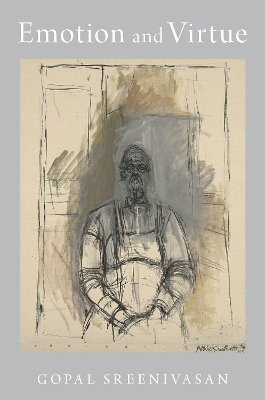
Emotion and Virtue
Seiten
2020
Princeton University Press (Verlag)
978-0-691-13455-0 (ISBN)
Princeton University Press (Verlag)
978-0-691-13455-0 (ISBN)
A novel approach to the crucial role emotion plays in virtuous actionWhat must a person be like to possess a virtue in full measure? What sort of psychological constitution does one need to be an exemplar of compassion, say, or of courage? Focusing on these two examples, Emotion and Virtue ingeniously argues that certain emotion traits play an
A novel approach to the crucial role emotion plays in virtuous action
What must a person be like to possess a virtue in full measure? What sort of psychological constitution does one need to be an exemplar of compassion, say, or of courage? Focusing on these two examples, Emotion and Virtue ingeniously argues that certain emotion traits play an indispensable role in virtue. With exemplars of compassion, for instance, this role is played by a modified sympathy trait, which is central to enabling these exemplars to be reliably correct judges of the compassionate thing to do in various practical situations. Indeed, according to Gopal Sreenivasan, the virtue of compassion is, in a sense, a modified sympathy trait, just as courage is a modified fear trait.
While he upholds the traditional definition of virtue as a species of character trait, Sreenivasan discards other traditional precepts. For example, he rejects the unity of the virtues and raises new questions about when virtue should be taught. Unlike orthodox virtue ethics, moreover, his account does not aspire to rival consequentialism and deontology. Instead Sreenivasan repudiates the ambitions of virtue imperialism.
Emotion and Virtue makes significant contributions to moral psychology and the theory of virtue alike.
A novel approach to the crucial role emotion plays in virtuous action
What must a person be like to possess a virtue in full measure? What sort of psychological constitution does one need to be an exemplar of compassion, say, or of courage? Focusing on these two examples, Emotion and Virtue ingeniously argues that certain emotion traits play an indispensable role in virtue. With exemplars of compassion, for instance, this role is played by a modified sympathy trait, which is central to enabling these exemplars to be reliably correct judges of the compassionate thing to do in various practical situations. Indeed, according to Gopal Sreenivasan, the virtue of compassion is, in a sense, a modified sympathy trait, just as courage is a modified fear trait.
While he upholds the traditional definition of virtue as a species of character trait, Sreenivasan discards other traditional precepts. For example, he rejects the unity of the virtues and raises new questions about when virtue should be taught. Unlike orthodox virtue ethics, moreover, his account does not aspire to rival consequentialism and deontology. Instead Sreenivasan repudiates the ambitions of virtue imperialism.
Emotion and Virtue makes significant contributions to moral psychology and the theory of virtue alike.
Gopal Sreenivasan is the Lester Crown University Distinguished Professor of Ethics at Duke University. He is the author of The Limits of Lockean Rights in Property.
| Zusatzinfo | 8 b/w illus., 3 tables |
|---|---|
| Verlagsort | New Jersey |
| Sprache | englisch |
| Maße | 155 x 235 mm |
| Themenwelt | Sonstiges |
| Geisteswissenschaften ► Philosophie ► Ethik | |
| Geisteswissenschaften ► Psychologie | |
| ISBN-10 | 0-691-13455-3 / 0691134553 |
| ISBN-13 | 978-0-691-13455-0 / 9780691134550 |
| Zustand | Neuware |
| Haben Sie eine Frage zum Produkt? |
Mehr entdecken
aus dem Bereich
aus dem Bereich
unsere kollektive Verantwortung
Buch | Hardcover (2023)
wbg Theiss in Wissenschaftliche Buchgesellschaft (WBG) (Verlag)
CHF 46,90


